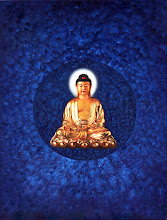Badal Das' dream is quite simple. He hopes that unlike every member of his family for centuries, Kwaran Das, his eight-year-old son, will grow up to be someone other than a sweeper. Among his three sons Kwaran is the only one studying in a school run by Chittagong City Corporation. Badal Das is a Dalit, a member of the so-called "untouchable" caste that sits at the very bottom of the traditional Hindu society.There are about 3.5 million "untouchable" sweepers all over Bangladesh who clean government offices, hospitals, educational institutions, different private and non-government offices and roads under the city corporations of the country. Their history can be traced back to the colonial era when their ancestors were brought to Bangladesh from Hyderabad (India) by the British rulers to perform manual work. Still today the community's first language remains Telugu and Hindi. Their attire, food habits, culture, methods of worship and almost everything is different from the other Hindus and obviously from the other people of Bangladesh. Members of the Dalit community lead an inhuman and sub-standard life amid unbearable sufferings and serious uncertainty. Belonging to the lowest caste they are not treated as human beings. With every passing day the security of government jobs have also decreased as no man in future would be appointed as sweeper without having a Class eight certificate. "My son is not so hopeful of being a City Corporation sweeper as he doesn't have the Class eight certificate", says Ratan Das, a sweeper in Chittagong. "He never went to school."There are 300 million Dalits in South Asia. In India, Dalits have recently made considerable progress in terms of poverty reduction, access to jobs and in securing power. But in Bangladesh the Dalits have a much lower public profile and no political power. For all the discrimination they face, Dalits say that the Bangladeshi authorities do not officially recognize that Dalits even exist. "They say everybody is equal. But nothing is equal," says Badal Das, "We are discriminated in every sphere of our lives".
Humaira Fatema
Sunday, August 2, 2009
Subscribe to:
Post Comments (Atom)

No comments:
Post a Comment